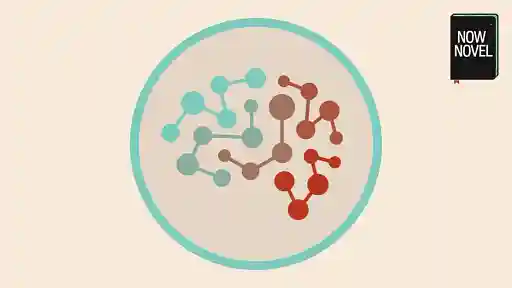Writer software has evolved over the years. Now you can organize your writing process, format your book and perform research easier than ever. The best writing software:
- Speeds up your writing process
- Makes it easier to collaborate with editors, writing coaches and first readers
- Helps you turn out a polished, publishing-ready manuscript
Here are 6 of the best writing software programs currently available:
1: Create order from chaos: Scrivener
Scrivener is one of the most popular novel-writing programs. The software lets you create collections of documents and organize them in sequence so that you can edit your novel in parts or as a whole. Some of the features we like:
- The virtual corkboard: You can write your novel's storyboard on virtual index cards and shuffle them around. This integrates well with Now Novel's central idea finder, as you can plug information you come up with on Now Novel into your index card layout
- Document exporting: You can export your completed document to various web and e-book formats, making it easier to prepare your novel for submission or self-publishing
What platforms are supported?
Currently (as of April 2016), you can get Scrivener for desktop operating systems: Microsoft Windows (up to Windows 10) and Mac OS X. There is no mobile app, something some reviewers take issue with. The absence of a cloud-based version has also deterred some writers from using the platform, as one responder to our 'Scrivener versus Google Docs' Twitter poll indicated:
@nownovel @ScrivenerApp @googledocs I'd use Scrivener if it were cloud friendly. Until then, I use Docs.
— Ezra Heilman (@EzraHeilman) February 29, 2016
Scrivener does sync with some online apps that enable you to backup your work, however, as the app makers stated:
@EzraHeilman Hello Ezra. You can save your Scrivener projects to Dropbox if you wish, so you have online storage of your writing. :-) DJ
— Scrivener (@ScrivenerApp) February 29, 2016
Other writer software might not be focused by design on writing a novel specifically, yet a good word processor can make writing a novel much easier if you know its best tips and tricks:
2: Microsoft Word: Getting more out of writing software features
Microsoft Word has gone through many redesigns and also allows you to save your work in progress in the cloud. Distraction-free full screen writing and editing makes it easier to focus on writing your novel. As multi-featured writer software, it has a number of features that are particularly handy:
- Comments and revisions: Being able to leave sticky notes highlighting specific text makes it easier to revise your own work or share your novel-in-progress with your editor. You can also track revisions, showing corrected text in red alongside the current version.
- Font colour: Being able to change font colour means that you can make the text white like the background. Try this to draft faster. When you can't see what you've just written you'll be less tempted to go back and edit constantly
- Find and replace: This is extremely useful when there is a place or character name you decide to change: Use find and replace to quickly change names or other details throughout your draft
Author C.C. Hogan provides some helpful tips for writers on getting more out of Microsoft Word: This includes customizing the quick access tool bar. Put all of your favourite functions (spellcheck, export and print review, for example) in one easy-to-find place.
Additional advantages of Microsoft Word for the book writer
Microsoft Word is available for most operating systems. In addition to desktop writing software, Microsoft Word is avialable as a multi-feature app for iPhone, iPad and android devices.
If cloud-based writer software is more to your liking, Google Docs is a free option:
3: Writing a novel online with Google Docs

If you're searching for free writing software, Google's writing and editing suite is excellent. Although Google Docs doesn't have as advanced functionality as either Scrivener or Word, it does allow easy document collaboration via comments. What's more, it integrates seamlessly with Google's email client Gmail, making it easy to notify your mentor, editor or writing buddy when you have new writing ready for feedback.
Features we like:
- Autosave: Google Docs saves every 3-4 minutes in the cloud, so when you open your file again the latest version of your book draft will be available to work on
- No compatibility issues: When sharing your work with collaborators, you don't have to worry about whether or not the formatting will look right on their devices as it is cloud-based
- Google Docs mobile apps: You can review and edit your work in your desktop browser or on your smartphone and Google Docs syncs your work between the two, making it easy to work on your novel draft wherever you are
Find out more about Google Docs' useful features for writers here.
4: Streamline your novel research with Evernote
Evernote combines several useful functions for writers. In addition to enabling you to write documents and organize them in notebooks and chapters, the app also lets you clip and save any article in part or in full that you find on the internet. You can do this easily oncse you've installed Evernote's internet browser add-on (you can find the official Google Chrome Evernote add-on here)
This advanced form of bookmarking lets you quickly extract the information that is most useful for your novel and organise it for later reference. Create separate notebooks for different elements of your novel (e.g. factual details for your novel's settings or details about historical figures (handy if you're writing historical fiction).
Evernote is free if you use the basic software. It's available as desktop software and there are mobile apps for Apple and Android devices. The premium version gives you additional features including offline access to all your notes on your mobile device.
5: Writer software that helps you focus: FocusWriter

When we ran a poll on the blog to find out what your most common writing challenges were, lack of focus was one of the top responses. Enter FocusWriter: This desktop software provides a simple, full-screen writing space. You can customize your page and background but there are no other frills to distract you.
Features of FocusWriter we like:
- You can set daily word count goals as well as timers and alarms for timed productivity methods such as the Pomodoro technique
- When you open the program, your current work in progress is loaded to the place where you last left off, making it easy to dive straight back into your story
FocusWriter is tipware, meaning that you choose how much to tip the creators when you download the software: You can pay anything from $0 to $20. You can get FocusWriter here.
6: Preparing your manuscript for an eBook release: Calibre
If you've finished your final draft and you have a manuscript that's ready for publication, you can easily put together an eBook using the free writing software Calibre. Calibre supports formatting and exporting to digital formats such as EPUB and MOBI (the latter favoured by Amazon for its Kindle devices).
Features we like:
- You can add in all meta data, so that author, title, publication year and other information is included in your eBook's details
- You can import other document formats and use the auto ebook creator to reformat your manuscript for eBook publishing
Indies Unlimited blog has a basic introductory guide to using Calibre to create an eBook that will help you get started.
Use Now Novel's browser-based story outlining app to write a helpful outline and get writing.









Scrivener does work with cloud storage if the main file is saved locally and the backup gets sent to the cloud. At least that's what's worked for me. Due to how often it saves creates issue with cloud storage if that is the default place to save.
Jeri Walker - About 9 years ago
Thanks, Jeri. I think what some people mean is that they'd like being able to write in-browser or across devices without manually saving their files. It's important to have backup functionality too, however.
Bridget At Now Novel - About 9 years ago
Thanks for the clarification.
Jeri Walker - About 9 years ago
Only a pleasure!
Bridget At Now Novel - About 9 years ago
https://gingkoapp.com is very good for this too!
Marekachauthor - About 9 years ago
Thanks for the recommendation!
Bridget At Now Novel - Almost 9 years ago
If you're looking for software that frees you to focus solely on you content without having to consider layout and design (you simple declare a stylesheet at the beginning & it handles the layout for you), if you're doing technical or scientific writing, or need to include mathematical equations, and if you don't mind a bit of a learning curve, LaTeX is powerful, free, and truely multi-platform: Mac OS, GNU/Linux, & Windows are alk supported. http://www.latex-project.org/. Also, I wholeheartedly concur with your Calibre recommendation.
Joel Swanson - About 9 years ago
Thanks Joel, know a few scientists who use LaTeX mainly. Glad to see another Calibre fan.
Bridget At Now Novel - Almost 9 years ago
Not sure if anyone has mentioned this, but the creator of Scrivener is working on an iOS version that i believe is in an Alpha testing stage currently. We've been waiting patiently - hopefully it will be soon ?
Aaron Betts - Almost 9 years ago
Fantastic, Aaron. I'm sure many people will be thrilled. David from Scrivener did actually mention this in an email to me around the '140 characters' contest we're running (sponsored by Scrivener) at the moment.
Bridget At Now Novel - Almost 9 years ago
The Pomodoro Technique is a time management method that enables users to focus on one task at a time. Pomzen application is a online timer for the method. The application tracks time for users and gives them statistics how effective their days have been.
Pomzen - About 4 years ago